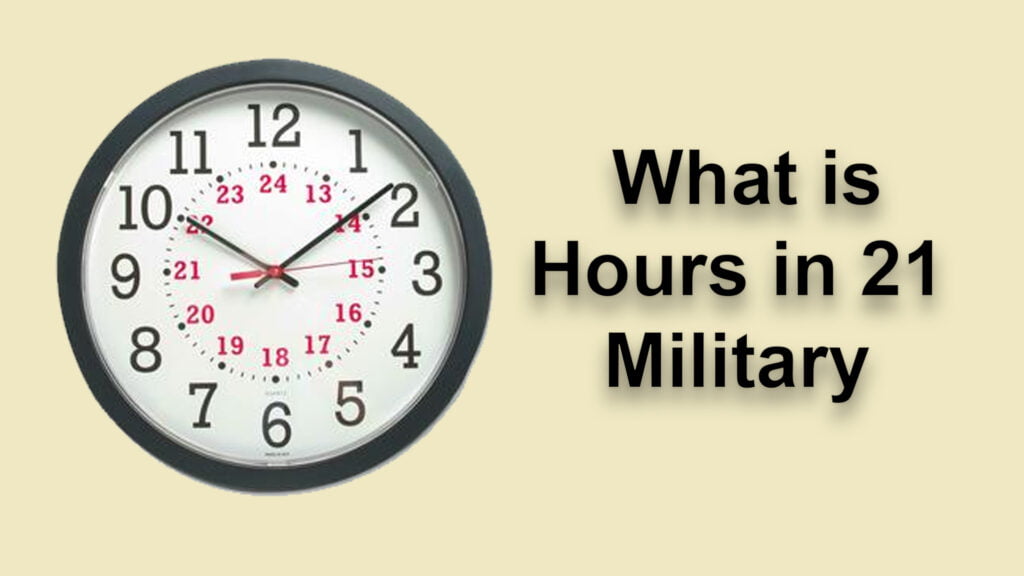What is 21 hours in military? Unveiling the Mystery Behind Military Time
Description:
Discover the significance of “What is 21 hours in military?” Learn about military time, its usage, and why it’s crucial for precise communication in various military operations.
Introduction
Military time, often referred to as the 24-hour clock, is a system used by the military and other organizations worldwide for timekeeping. Understanding “What is 21 hours in military?” requires delving into this system, its structure, and its importance in military operations. Let’s explore the intricacies of military time and unveil the mystery behind 21 hours in military.

Understanding Military Time
What is Military Time?
Military time is a timekeeping system where the day is divided into 24 hours, beginning at midnight (0000 hours) and ending at 2359 hours. Unlike the standard 12-hour clock used in civilian life, military time avoids ambiguity by using a continuous count of hours throughout the day.
Structure of Military Time
Military time follows a simple format, where each hour is represented by a two-digit number from 00 to 23. For example, 8:00 AM is represented as 0800 hours, while 8:00 PM is represented as 2000 hours. This eliminates confusion between morning and afternoon hours.
Importance of Military Time
Military time is crucial for precise communication in various military operations, including coordination, scheduling, and logging events. Its standardized format ensures clarity and accuracy, which are vital in high-stakes situations.
21 Hours in Military: Decoding the Time
What Time is 21 Hours in Military?
In military time, 21 hours corresponds to 9:00 PM in the standard 12-hour clock. This time is denoted as 2100 hours, signifying the ninth hour after midnight.
Significance of 21 Hours in Military
21 hours holds significance in military operations, especially during night missions, patrols, and shift changes. Understanding this time ensures effective coordination and synchronization among military personnel.
FAQs (Frequently Asked Questions):
How is Military Time Used Outside the Military?
Military time is not exclusive to the military; it is also utilized in various professions such as aviation, healthcare, and public safety. Its clear and concise format enhances communication and reduces errors.
Why is Military Time Preferable in Certain Situations?
Military time offers several advantages, including eliminating confusion between AM and PM, simplifying international communication, and facilitating precise coordination in critical operations.
Is Military Time Used Globally?
Yes, military time is used globally in various industries and sectors, especially where precise timekeeping is essential. Its standardized format transcends language barriers and ensures universal understanding.
Can Civilian Individuals Benefit from Using Military Time?
Certainly! While civilian life predominantly follows the 12-hour clock, adopting military time can enhance time management skills, reduce confusion, and improve efficiency in daily tasks.
Are There Any Drawbacks to Military Time?
While military time offers clarity and precision, some individuals may find it challenging to adjust initially, especially if they are accustomed to the 12-hour clock. However, with practice, the transition becomes seamless.
How Can One Easily Convert Between Military Time and Standard Time?
Converting between military time and standard time is simple. To convert military time to standard time, subtract 12 from any time after 12:00 PM. For example, 1500 hours becomes 3:00 PM.
Conclusion
Understanding “What is 21 hours in military?” unveils the significance of military time in precise timekeeping and coordination within the military and beyond. By adopting military time, individuals can enhance communication, reduce errors, and improve efficiency in various professional settings.
Spread Knowledge
Leave a Reply